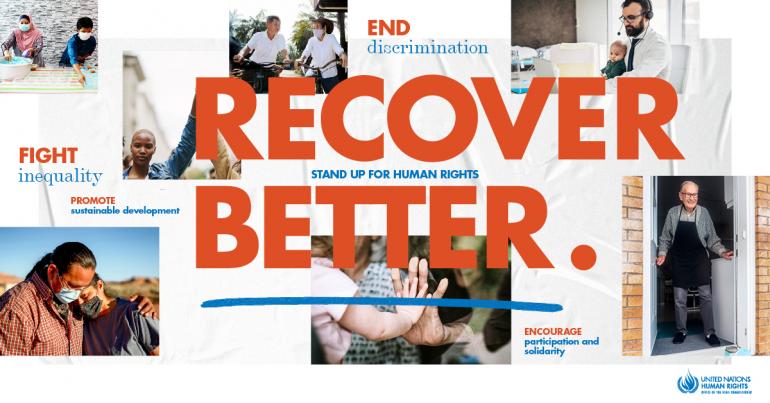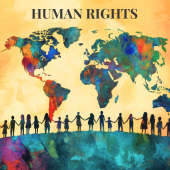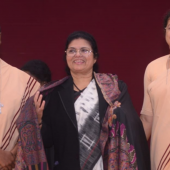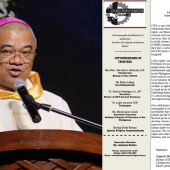Recover Better, Stand Up for Human Rights

Human Rights Day is observed every year on December 10, the day the United Nations General Assembly adopted, in 1948, the Universal Declaration of Human Rights.
The UDHR is a milestone document that proclaims the inalienable rights which everyone is entitled to as a human being -- regardless of race, colour, religion, sex, language, political or other opinion, national or social origin, property, birth or other status.
Available in more than 500 languages, it is the most translated document in the world.
This year’s Human Rights Day theme relates to the COVID-19 pandemic and focuses on the need to build back better by ensuring Human Rights are central to recovery efforts.
We will reach our common global goals only if we are able to create equal opportunities for all, address the failures exposed and exploited by COVID-19, and apply human rights standards to tackle entrenched, systematic, and intergenerational inequalities, exclusion and discrimination.
December 10 is an opportunity to reaffirm the importance of human rights in re-building the world we want, the need for global solidarity as well as our interconnectedness and shared humanity.
Under UN Human Rights’ generic call to action “Stand Up for Human rights,” the United Nations aims to engage the general public and the UN family to bolster transformative action and showcase practical and inspirational examples that can contribute to recovering better and fostering more resilient and just societies.
The COVID-19 crisis has been fuelled by deepening poverty, rising inequalities, structural and entrenched discrimination and other gaps in human rights protection.
Only measures to close these gaps and advance human rights can ensure we fully recover and build back a world that is better, more resilient, just, and sustainable.
This year's calls include:
End discrimination of any kind: Structural discrimination and racism have fuelled the COVID-19 crisis. Equality and non-discrimination are core requirements for a post-COVID world.
Address inequalities: To recover from the crisis, we must also address the inequality pandemic. For that, we need to promote and protect economic, social, and cultural rights. We need a new social contract for a new era.
Encourage participation and solidarity: We are all in this together. From individuals to governments, from civil society and grass-roots communities to the private sector, everyone has a role in building a post-COVID world that is better for present and future generations. We need to ensure the voices of the most affected and vulnerable inform the recovery efforts.
Promote sustainable development: We need sustainable development for people and planet. Human rights, the 2030 Agenda and the Paris Agreement are the cornerstone of a recovery that leaves no one behind.
Radio Veritas Asia (RVA), a media platform of the Catholic Church, aims to share Christ. RVA started in 1969 as a continental Catholic radio station to serve Asian countries in their respective local language, thus earning the tag “the Voice of Asian Christianity.” Responding to the emerging context, RVA embraced media platforms to connect with the global Asian audience via its 21 language websites and various social media platforms.














